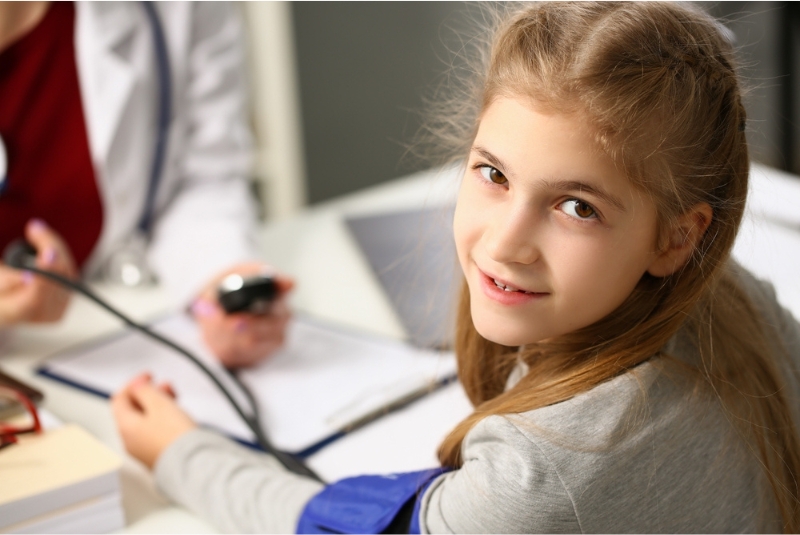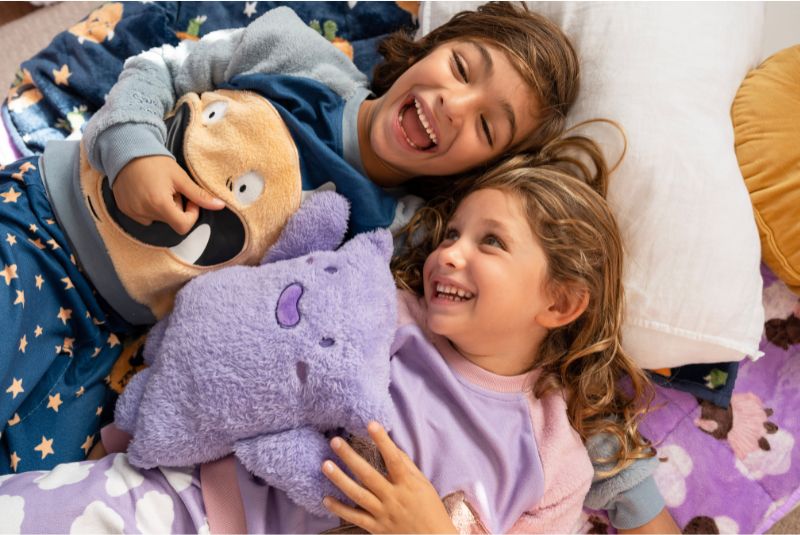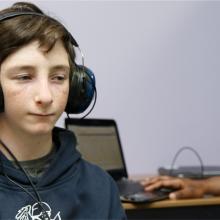Sleep
Sleep is important for growth, immunity, learning and memory. Sleep provides energy to work, play and function properly.
One in three Australian children have trouble sleeping.
Watch as Indi asks Professor Harriet Hiscock about the sleep research done at MCRI.
Watch as Indi asks Professor Harriet Hiscock about the sleep research done at MCRI.
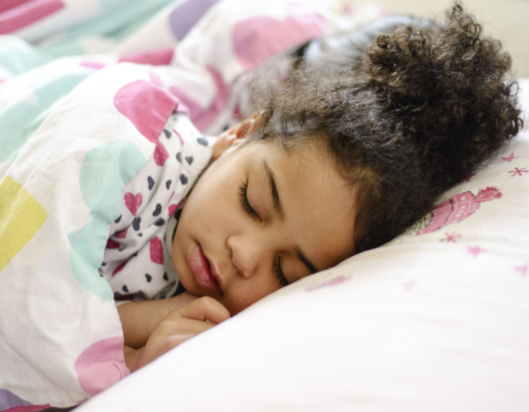
Good sleep habits
Good sleep habits are essential to the health, wellbeing, development and learning of infants and children. Babies, children and teenagers need different amounts of sleep as they age.
Sleep restores children physically, boosts immunity and helps protect them from sickness. Children also produce growth hormones while asleep.
Lack of adequate sleep impacts coping skills, behaviour and coordination. Childhood sleep issues are linked to inattention and unhappiness, plus poorer learning, memory formation and social/emotional skills.
Most adolescents sleep less than the recommended amount on school nights. This is linked to depression and anxiety.
Children with autism spectrum disorder (ASD), attention deficit hyperactivity disorder (ADHD) and certain respiratory or developmental conditions are more prone to sleep problems.
Infant sleep problems are related to increased risks of postnatal depression.

Who does it affect?
Who does it affect?
- We found at least one in three Australian children has trouble falling asleep or has trouble staying asleep throughout the night.
- Sleep problems affect more than one-third of infants and 20 per cent of mothers report severe, persistent baby sleep problems in the first year.
- Up to 70 per cent of children with attention deficit hyperactivity disorder suffer from behavioural or medically-based sleep problems and up to 80 per cent of children on the autism spectrum have sleep difficulties.
- One-quarter of 12 to 13-year-olds and half of 16 to 17-year-olds in Australia don’t get enough sleep on school nights.
Our sleep research
Our sleep research
Researchers at Murdoch Children’s Research Institute found that conducting two sessions advising parents on healthy sleep habits and behavioural strategies improved the sleep of children with ADHD. We found that a brief intervention not only improves sleep in children with autism but also their wellbeing and quality of life. Sleep interventions also help to improve the mental health and quality of life of parents.
Most children with epilepsy have sleep problems which can trigger seizures and reduce learning ability. We’re collaborating with UK researchers to evaluate an online sleep intervention in children with epilepsy.
Chronic fatigue syndrome (CFS) affects one in 1,000 Australian children and adolescents. We’re researching CFS (or Myalgic Encephalomyelitis) to better understand the condition and its progression, evaluate interventions and embed evidence-based practice into care.
About 10 per cent of children worldwide snore or have difficulty breathing while asleep. This can cause sleepless nights plus behaviour and concentration problems during the day. Our research has found that a saline (salt water) nasal spray is just as effective as anti-inflammatory steroid nasal sprays at easing sleep-disordered breathing in children after six weeks of treatment. The follow-up MIST+ Trial will explore long-term outcomes and whether certain children will benefit more from using the steroid or saline spray.
Alongside The Royal Children’s Hospital Respiratory Department, we’re assessing the usefulness and acceptability of sleep studies via telemedicine for patients at home.
Our research involves various projects to better understand and improve sleep in different groups. One project looks at developing reference ranges for infant sleep during sleep studies, while another looks at differences between hospital studies and home studies in paediatrics. We are determining the best CPAP pressure for home use and looking at ways to improve sleep for hospitalised patients.
Over the past decade, we've been part of Achondroplasia trials, studying how bone-lengthening medication affects sleep in this group.
With support from the MRFF, we study sleep in people with developmental disabilities.
For our future studies on sleep, we’d like to investigate the impact that lack of sleep has on parents. Adolescent, child and paediatric sleep problems can affect parents’ relationships with their child and partner, cause tension and be a health issue.
Impacts of our research
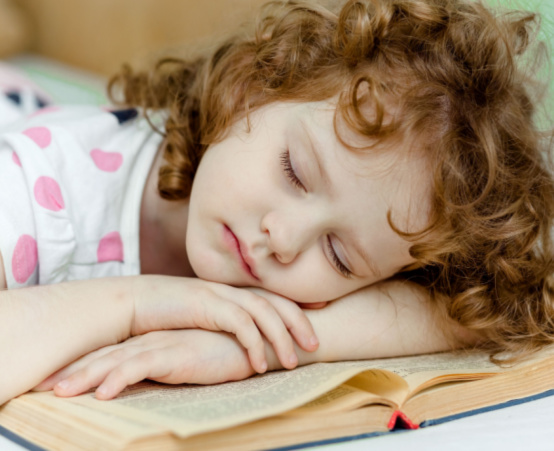
Impacts of our research
- Based on over two decades of research, we developed six books for children aged three to eight years – each focusing on an evidence-based sleep strategy. The Sleep with Kip™ stories are a fun and friendly way to learn to manage common sleep problems in children.
- We’ve produced eight podcasts to identify sleep problems and improve sleep in babies through to teenagers.
- We found that severely unsettled babies who experience infant sleep issues are more likely to have mental health problems in childhood. Additionally, poor mental health during pregnancy is linked to severe baby sleep problems.
- As leaders in infant sleep research, we’ve found effective techniques and developed resources for early childhood educators to support safe sleep and health professionals to support families managing babies.
- Our suite of sleep interventions and strategies including an app and digital education program have been implemented worldwide. Our trials show they reduce sleep and behavioural problems in children and improve parents’ mental health.
- Our Baby Business program and booklet help reduce infant sleeping and crying problems and improve mothers’ sleep and depression. They provide strategies to help babies resettle without always feeding or rocking them to sleep. The strategies are safe and have no long-term harmful effects. The program is now the intervention for the eight-month Maternal and Child Health visit and is available online for practitioners globally.
- Our sleep trial of 25 nurse home visits in a baby’s first two years is proving successful and could transform maternal and child health service delivery.
- We revealed how crucial it is to get children snoozing earlier and found extra sleep can reduce a child’s weight.
- We’ve contributed to guidelines to improve sleep in children with achondroplasia (dwarfism) and cerebral palsy.
- Our interventions for children with ADHD and autism improve sleep, behaviour and parental mental health and are being implemented in the community.
Our vision
Our vision
Our goal is to help children sleep by promoting and enabling good sleeping habits from infancy to adolescence. This will help them live their best life and transform the lives of their parents and families.
Donate to MCRI
Help our researchers make life-changing discoveries in child health.

